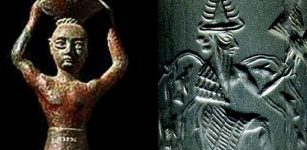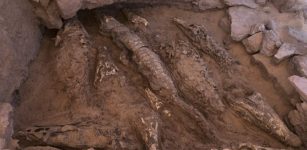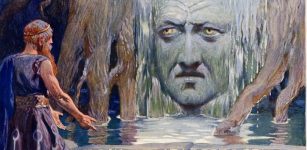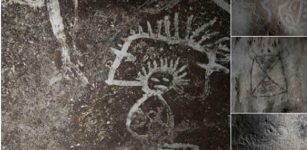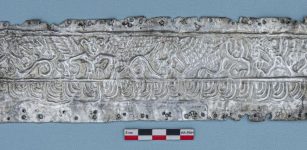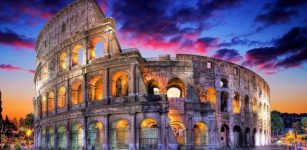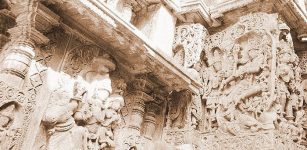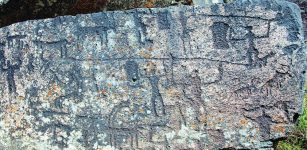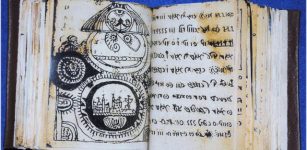On This Day In History: Irish Saint Columbanus Founder Of Monasteries In Europe Died – On Nov 21, 615
AncientPages.com - On November 21, 615, died Irish Saint Columbanus, who founded monasteries throughout France, Germany, and Italy.
He was one of those many Irish missionaries who kept the faith alive in Western Europe after the destruction of Rome, now known as The Dark Ages. Irish missionaries were crucial figures in the spread of Christianity in Anglo-Saxon England and the Frankish Empire during the 6th and 7th centuries.
Photograph of the Saint Columbanus Window in the crypt at the Abbey of Bobbio. Image credit: Trebbia - CC BY-SA 3.0
The spreading of monasteries from Ireland towards continental Europe represented an irreplaceable contribution to early medieval Christianity.
St. Columbanus was born in Ireland in 543; with 12 colleagues, Columbanus set off from Ireland and, in 585, landed on what is now the French coast. From there, he began spreading the Irish monastic tradition and founding monasteries.
He founded several monasteries on the territory of early medieval Burgundy.
Many of them were built to honor the work of St. Columbanus; for example, a monastery in Trambileno, Italy, is notable for its location on the side of a mountain.
He later moved to what is now Germany and founded a monastery near Mehrerau, near the modern Austrian-German-Swiss border.
Setting off towards Italy, St. Columbanus founded the renowned Bobbio monastery south of Milan. That monastery allegedly inspired Umberto Eco's novel The Name of the Rose.
St. Columbanus died on this day in the Bobbio monastery, was there, and his associates continued his missionary work. One of them was St. Gall, after whom a Swiss canton was named after him (St. Gallen).
The Catholic Church celebrates St. Columbanus Day on November 23. Columbanus is the Patron Saint Of Motorcycling.
In recent years, however, as historians have re-examined Columbanus's deeds and legacy, the traditional narrative of his career has been challenged, and doubts have been raised regarding his involvement in missionary work.
Did he have only purely religious motives, or was he also involved in politics and church politics in Europe?
AncientPages.com
Expand for references


